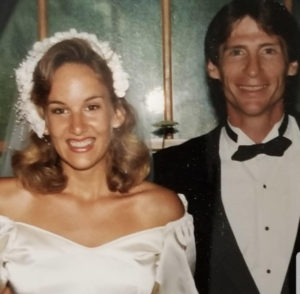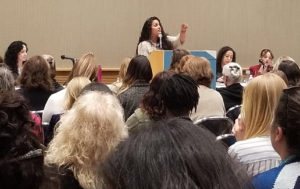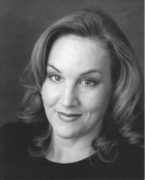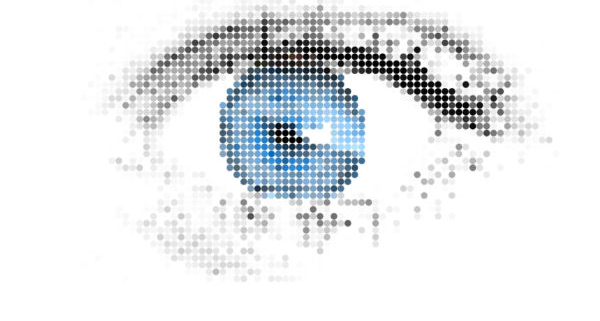Small Details
 I notice small details. Hairline cracks in a wall, misspellings and incorrect grammar, the moment a person lies. There’s no inquiry involved, no attempt to gather evidence. I’ve always been this way.
I notice small details. Hairline cracks in a wall, misspellings and incorrect grammar, the moment a person lies. There’s no inquiry involved, no attempt to gather evidence. I’ve always been this way.
It still stings my mom. She wonders what I’m even talking about when I point out the fret on her nurse’s face. People bring their worries to work, I tell her. They can’t just shut it down. But Mom waves me off as she always did while Dad listened intently. He was the same way and valued my perception.
Where we come from it’s called touched and not something to boast about. Some consider it second sight—of the Devil. Others: a spiritual gift. Whatever its source, this inclination has barbs. People don’t take well feeling seen through.
I’ve learned to hold my tongue. Even lost friends. When you see a thing and know a thing can crush someone you love, you feel conscripted to warn against the thing. Age and sages have taught me: you have to let people fall. There exists one exception to this platitude: if a person asks me for advice, then let thee be warned: I go full hog.
A person introduces me to a new man she likes. Let’s call him Jack. We work through the small talk. I cover my reactions like a smiling ventriloquist. The visit finishes and later the woman contacts me with such hope.
So, what’d you think?
If Jack calls you or comes to see you: Kindly give your regrets.
How do I know this?
It’s in the eyebrows. Small face muscles. How Jack rubs the back of his neck. Honestly, it’s a feeling I get. Something otherworldly that just…tells.
When I was eight, my parents took me out to dinner. The server wore a pale pink cotton dress. My father remarked how pretty her hands were. She thanked him, took our order, and left.
Daddy. She’s in a fight with her boyfriend.
What on earth, child? My mother sucked in air and turned away.
Daddy nodded, yes. He believed me. Something was weighing our server down, a burden pushing on her chest. To me, it was as visible as the slender fingers that held her pen and notepad.
Those who notice small details, who closely observe others, notice fellow observers. We find each other usually in silent acknowledgement. These are my people. No secrets are hidden, no heavy blankets laid over top. I don’t have to hold back what I know. They don’t deny what they already accept.
My father was a watcher. But by the time I was nine, he missed warnings signs I’d begun flagging in front of him. What my father didn’t notice and my mother denied shaped my future. The turmoil this caused derailed how I self-expressed. A child in conflict is left with few options.
I became a liar.
I want to tell you lying started out little white-like. That I occasionally cried wolf or the fish got bigger in retold legends. But my lies were astounding fictions.
Lies built walls and closed me away, became my hiding place, and though child-lying is obvious, it emboldened me. With age, practice, and a shrewd ability to evaluate others, by high school, I was a damned good liar.
Keeping the details straight exhausted me. Compulsively shifting narratives, dodging peoples’ suspicions. To be caught in a lie struck a fear in me, yet not more frightening than having my truth exposed. I would do anything to protect it. Anything.
Off at art school, oil painting, and habitually denied sleep, the hairline cracks in my thinking began to dissemble it. Lies distracted my restless, hungry mind—the mind I thought I was starting to lose.
By the time I dropped out of my senior year in college, I had mastered lying. I lied so completely the words fooled everybody. Lies became my superego and spokeswoman. I lied when it wasn’t even needed. The compulsion was flexed and ready. If backed into a corner, a lie came out swinging.
* * *
Now a part-time department store and daycare worker, a nanny, and a full-time education student, I could sneak away one night a week for group therapy. I took the #5 bus to Salem Ave. United Way for low cost therapy. The very first bus ride— about midway—the driver stopped and picked up a mousey girl with a slight limp. Miles later, I pulled the cord, stood until the driver lurched to a stop, and I stepped forward. Down at the second bus door, I noted Mouse Girl doing the same. We exited the bus and walked wordlessly together.
* * *
The group scraped chairs into a circle. We sat in an awkward silence until a bubbly therapist burst in and introduced herself, then encouraged us to do the same. We named off counter clockwise, all fifteen of us, except for one. The therapist introduced this woman who sat, knitting, as “Ruby,” and moved on to the business of how we would honor confidentiality. For the next six months of Wednesdays, Ruby knitted without looking up, come whatever #MeToo share swirled around her.
During this momentous first group therapy, fifteen minutes into the session, a tiny knock interrupted one woman’s confession. The therapist looked rattled, and quickly met a colleague at the door. Whispers passed between the huddle. Someone had arrived late. When the therapist turned and offered the new member a seat, it was Mouse Girl standing there more bent and looking feeble with a pained face. The therapist patted and fawned the newcomer as they walked into our circle.
Ladies, this is Penny.
Hi Penny.
Penny missed her bus and had to walk over a half an hour just to get here!
The group sighed. Poor thing. How awful.
Penny limped large, arduous steps to an empty chair, ladies praising her efforts.
Her dress was maroon, closely formed to her shape. Skin, the color of limestone. Brown hair, frizzing in the August haze cupped her small shoulders. As she turned to ease down into the chair, she spotted me. Her eyes narrowed. Gold, like my brother’s and nervous. I stared at my caught mouse.
* * *
That’s the night I changed my life.
Riding home on the bus, without Penny accompanying me, I realized how much we were alike. She lied and made people sympathize with her. She needed their immediate affection just to be able to join in a circle, because being herself was too frightening. When I saw my reflection behaved back at me, I swore this oath:
I will never lie again.
I’ve stuck to it. Okay, okay. Saying Santa is real to a three-year-old, yes. I’m feeling great today when I’m not, those little fibs, they happen. But otherwise, I speak the truth.
When I committed to truth, I stuck to group therapy and waited for the day Penny would return or Ruby would dare speak. Ruby only shared once. She’d grown up in a farm house with all brothers. I kept my eyes focused on the nubby yarn, pulling through her fingers in even strokes. Knitting needles scraped with each word.
I’d been so kind, so entertaining to this group, smiling no matter how much emotional pain I incurred. Ruby’s share began to crack the casing that housed me. Tears lifted over and pooled into my smile, but I choked them back and kept smiling. Rage wouldn’t knock loose for many years.
Penny never came back.
* * *
Student teaching back at my prestigious high school, I was daunted to face all those teachers. They wanted me to call them by their first names! How would I escape the ridiculous, lying fool I was back then? I kept reminding myself that my teachers had been saviors during those terrible days. There were truths, there were facts. Learning was real. Even the tragic loss of my close friend was real. Truth showed up in other ways. My singing voice had filled the theatre. My art had decked the walls.
But one hard truth hounded me. Still does. In my two-mile town, schooled with the same people K-12, not one teacher, principal, guidance counselor, coach, not even one mother asked me the question I would have answered.
Is somebody hurting you?
When my teachers introduced me to Tom Auten one Friday lunch in mid-May, I was struck in love at first sight. I had a smudge of art charcoal on my nose. Our first date—after the movie—we drove down to the river, sat with the top down by the Carillon Bells, and talked. When bugs started biting, we retreated to his little house, sprawled out on his carpet, and told each other all our shit. We both had loads.
 A few months after our confessional, Tom and I were engaged.
A few months after our confessional, Tom and I were engaged.
I’ve spent my life with the one person who knows all my truth and he loves every part of it. I want to tell you Tom’s love restores all ails. That faith heals. Time is a balm. But I don’t lie.
Restoration is tiring work, gathering the broken pieces and overcoming the damage I endured.
Some days, I wonder who I’d be if I hadn’t needed to protect myself, if I hadn’t been The Liar. What body of art I would’ve created, where my stage career would have taken me? These reflections aren’t grand schemes to diffuse the dull ache of a well-educated wannabe. I remember what it felt like before I lost me.
I take comfort in the small details: how I can stop a baby from crying with one smile, how I can finally hug, how dogs adore me. I’m great at jury selection, keenly aware of the out-of-tune, able to closely match colors. I can smoke out schemes, sleuth plots, solve them, feel when change is coming, sense evil.
When teaching, my classroom is a safe place. I’ll protect every child. Protection is of great importance to me. Mess with my sons, regardless of the consequences, I’ll take you down. And there’s more. I’m a forever friend. My ability to spot trouble helps me know who to keep at a distance. And, yes, pay attention to the men I keep close to me. They are quality.
Learning to trust women hasn’t come as easily.
* * *
 Recently, I attended the Association of Writers and Writing Programs conference in Portland. At the loving suggestion of a writing mentor, I attended a panel discussion titled: “Writing the Mother Wound.” Close friend and CNF writer, Mireya S. Vela and I entered the large presentation room already filled. Women spilled to the sides, lined the walls, and bunched in the corners.
Recently, I attended the Association of Writers and Writing Programs conference in Portland. At the loving suggestion of a writing mentor, I attended a panel discussion titled: “Writing the Mother Wound.” Close friend and CNF writer, Mireya S. Vela and I entered the large presentation room already filled. Women spilled to the sides, lined the walls, and bunched in the corners.
Mothers are in trouble.
Mireya and I slid to the floor and listened. The presenters shared raw words, exposing their mother rage. These women voiced the forbidden, complex expressions never allowed. I stared at the rungs of a chair. My body, still, breath even. I closed my eyes and listened as poets and essayists spoke for me.
Why didn’t you help me?
Then I heard it. Weeping. Beside me, above, reverberating against the walls, with breath and heat: rows of women emoting and heaving. I didn’t move. I couldn’t. But these women moved me.
Somedays I wonder who I’d be had I not grown up with secrets and shame. Would I be a person who scoffs at the hyper-vigilant-touched, who turns her head away and waves people off?
* * *
I am the daughter of a man with deep sight. Combined with my own hyper-vigilance, not much slips past my view. But my wrecked childhood slipped past his. My father was devastated to learn he hadn’t protected me. The news diminished him.
I wanted to rewind, get back to the moment before he knew, when I didn’t feel dirty and used. This was the man who respected my opinions, valued my thinking, whose face lit up when I entered a room. I just wanted my Daddy back.
I wanted to lie.
Need help? R.A.I.N.N. says, “Visit online.rainn.org to chat one-on-one with a trained RAINN support specialist, any time 24/7.”
 Andrea Auten is a writer and a visual | performing artist. A writing specialist for Antioch University Los Angeles, she is an Associate Managing Editor for Lunch Ticket Literary and Art Journal. She lives with her husband, sons, and beloved writing partner, Dusky, the family cat, where she is currently working on a collection of short stories. @AndreaAutenArts | andreaauten.com |
Andrea Auten is a writer and a visual | performing artist. A writing specialist for Antioch University Los Angeles, she is an Associate Managing Editor for Lunch Ticket Literary and Art Journal. She lives with her husband, sons, and beloved writing partner, Dusky, the family cat, where she is currently working on a collection of short stories. @AndreaAutenArts | andreaauten.com |





